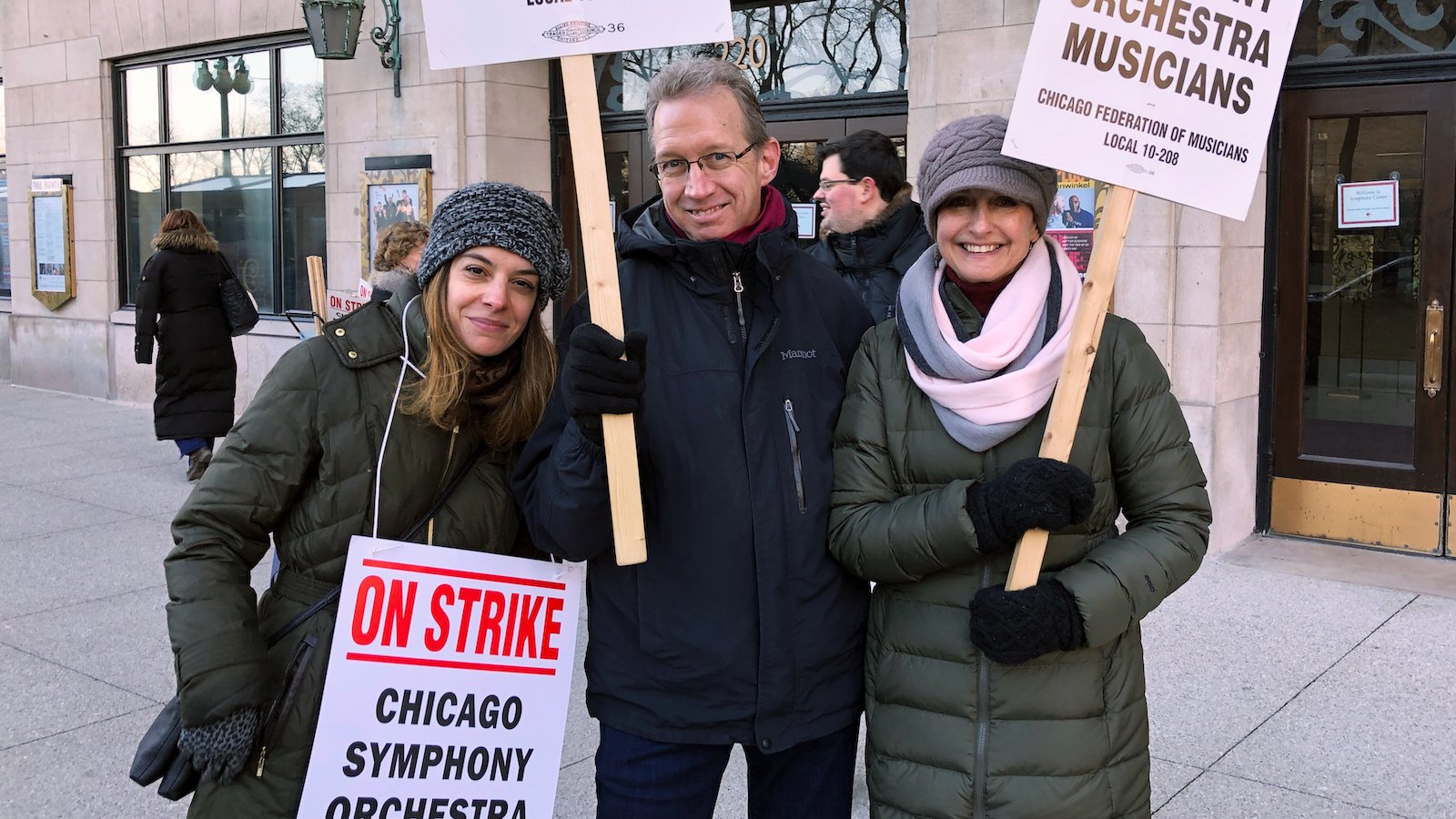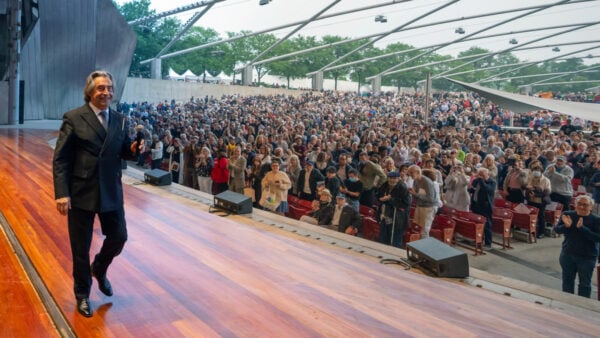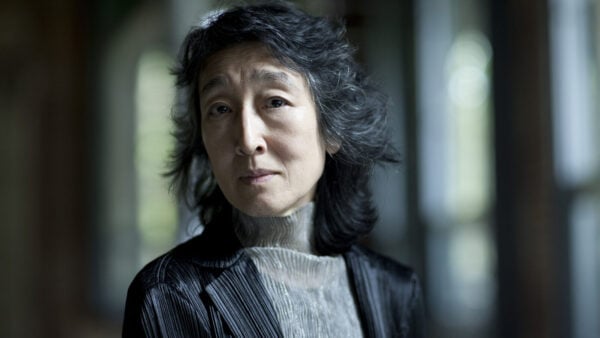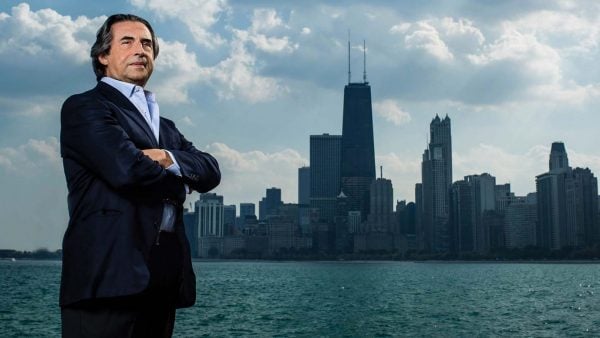
CSO musicians on strike at Symphony Center (Photo: Keegan Morris)
Little progress has been made in resolving the work stoppage at the Chicago Symphony Orchestra, CSO management said Monday during a conference call. The strike has now endured for a week, since 11:59 p.m. on March 10.
Since the strike began, various artists and public figures have appeared on the picket line to voice their support for the CSO musicians. Last Tuesday, music director Riccardo Muti spoke in favor of the musicians. On Thursday, Cook County Board President and Chicago mayoral candidate Toni Preckwinkle made an appearance.
This morning, cast members of Hamilton and A Bronx Tale showed their solidarity with the musicians by attending a rally at Symphony Center. Later in the afternoon, nine US Representatives representing Illinois joined the picket line in support of the CSO musicians. Perhaps the highest-profile entry yet came from Speaker of the US House of Representatives Nancy Pelosi, who expressed her support for the striking musicians in a statement on Tuesday, the Chicago Tribune reports.
This past Friday, representatives of the musicians’ union and the CSO Association assembled for an informational session with actuaries for both groups presenting financial analysis. Then on Saturday, negotiations resumed, but the session ended without a resolution.
CSO Association president Jeff Alexander said the two parties’ positions on the major points of contention remain unchanged since the beginning of the strike. The association hopes to transition the musicians’ retirement plan to a direct-contribution plan similar to a 401(k), while the musicians want to retain their defined-benefit plan, a classic pension.
The two sides also stand far apart on wages, with the association offering raises totaling five percentage points over the three-year term of the contract, and the musicians’ union requesting 12.5 percentage points.
Alexander said the association has signaled to the union that “there is room for movement” on the size of the raises in its proposal. He also added that, despite the deadlock on the major issues, many minor issues have been ironed out.
This past Sunday, the musicians’ union circulated a document expressing frustration that the association appeared to contradict itself on retirement plan accounting. The association’s own chart, totting up the costs of the competing retirement plan proposals over a ten-year horizon, projected its proposal to shift to a direct-contribution plan to cost $47.5 million and the continuation of the defined-benefit plan to cost $36.5 million.
The headline on the document read, “CSO management claim it can’t afford musicians’ pension is untrue — and management finally admits it.”
In the conference call Monday, Alexander rebutted this argument, saying the association’s proposal pays out the defined-benefit pension guarantee already accrued by current orchestra members in addition to starting up the direct-contribution system over the near term. Therefore the startup costs are indeed higher.
“The proposal we’re making to add the direct-contribution plan on top of the defined-benefit plan does, in fact, require the association to make an initial upfront investment above and beyond the $36 million,” he said. “The effect of that combined with freezing the defined-benefit plan makes it over the next ten years more expensive, but it’s an investment worth making in the future of the organization.”
With resolution not imminent and no further negotiations scheduled, the association announced on Monday the cancellation of all Symphony Center concerts through March 25, including the screenings of An American in Paris with live orchestra accompaniment on Friday and Sunday, and the subscription concerts Thursday and Saturday to be led by guest conductor Osmo Vänskä, a musician who is no stranger to work-stoppage-canceled concerts after losing an entire season to a lockout as the music director of the Minnesota Orchestra.
Editor’s note: The Chicago Symphony Orchestra Association is an advertiser on WFMT.





![After 28 Years, Chicago Symphony Chorus Director Duain Wolfe Gives a 'Joyous Farewell' Duain Wolfe_credit Todd Rosenberg[2]](https://www.wfmt.com/wp-content/uploads/2021/05/Duain-Wolfe_credit-Todd-Rosenberg2-600x338.jpg)
